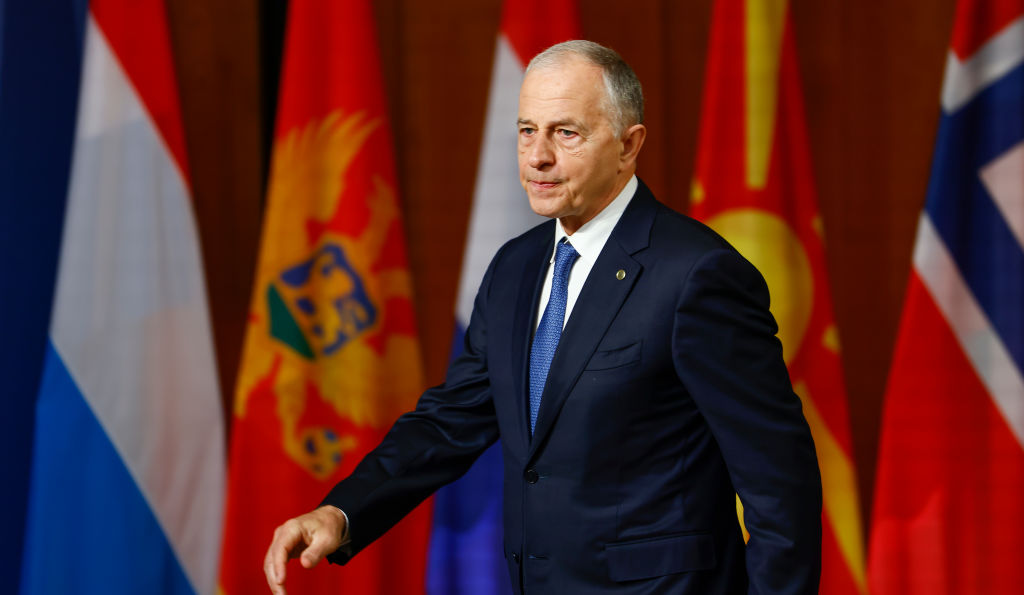NATO is considering pulling its technology and cyber hub out of Brussels due to Belgium falling consistently short of fulfilling its financial pledges to the organisation.
Belgium’s lack of investment in defence has reportedly left NATO allies questioning the country’s security commitment, newspaper HLN reported on August 14.
NATO is said to be considering the relocation of the prestigious department to neighbouring countries, although this has not been confirmed.
Behind the scenes, politicians and officials are working to ensure that the techno hub remains in Belgium.
“The issue is on the government desk,” Theo Francken, Belgian MP and defence specialist, said on social media.
The politician added that, currently, the situation “looks bad.”
Beste mensen,
De Belgische free-riding en ‘wie kan ons wat maken’ mentaliteit op vlak van Defensie bereikt een absoluut dieptepunt.
Dieptepunt
De Vivaldi regering is er in geslaagd om als énige Westerse land géén structurele verhoging van de defensiemiddelen te voorzien na de… pic.twitter.com/jBuIwHU5jU
— Theo Francken MP (@FranckenTheo) August 14, 2024
“With this short-sightedness, we are only shooting ourselves in the foot,” he said.
Despite decade-long pledges of improvement, the outgoing left-wing government under Prime Minister Alexander De Croo has failed to honour its financial promises to NATO.
While NATO finds itself forced to deal with the effects of two wars, in Ukraine and Israel, Belgium has invested a diminishing amount in its armed forces in recent years.
Figures from the Department of Budget (BOSA) showed a further decline in spending, from 1.17 per cent GDP in 2022 to 1.15 per cent in 2024, in spite of a Defence Ministry recovery plan. That stated spending would rise to 1.26 per cent, still far off the 2014 agreed NATO norm of two per cent of GDP.
These low figures were presented in July by defence staff to the political parties working to form the new government in Belgium. They will likely come as a blow as it means the new administration will have to find an extra €4 billion to make up the required amount.
Such costs come on top of an additional €28 billion in savings the next governments will need to make over seven years.
Inflation and the ongoing wars also caused prices of military products to go up, meaning the army will benefit less from the money.
The plans of the outgoing Socialist Minister of Defence, Ludivine Dedonder, only really kick in next year, meaning the burden was always going to fall on the next Belgian government.
Even then, using Dedonder’s numbers, Belgium would only be investing 1.45 per cent of GDP by 2030, despite promising NATO allies it would reach 1.55 per cent of GDP by then.
“We have laid a credible foundation: never before has there been such a significant investment in defence since the Cold War as during the past legislative term,” Dendonder said in reaction to the HLN report.
“The figures expressed as a percentage of GDP up to 2030 are a forecast for the future. Additional investments will be a task for the next government.”
“The needs of defence must be balanced against the needs of other departments,” she concluded.
COMMENT: For the time being, the enemy to be defeated by NATO is Russia, but there is no doubt that China is behind Russia, writes @JavierVillamor. https://t.co/m7ZWZtWg14
— Brussels Signal (@brusselssignal) July 12, 2024
According to HLN, the possible relocation of NATO offices could see as many as 1,000 jobs moved abroad.
NATO’s headquarters in Brussels have been recently renovated, but some suggest its IT department is being relocated to sites in the Netherlands and Germany.
HLN noted: “The IT service of the collective security organisation is known as one of the most profitable to have on your territory.”
“Because in addition to the more than 1,000 bright minds and their families who boost the local economy, a whole web of technology companies is also developing in its periphery. The latter benefit from the billions of euros that NATO spends annually on cybersecurity and other new projects.”
There had been plans to build an entirely new IT structure in Wallonia, in the south of Belgium close to a Google facility, where the multinational corporation houses several data centres.
Due to a myriad of complex building regulations, its construction had been delayed, much to the increasing frustration of the other member states.
New offices in the Hague and Bonn were said now to be tempting NATO’s technology and cyber experts away from Belgium.
Adding to this, member states that fall below the two per cent threshold for defence spending are now being urged to contribute a larger share to NATO’s operational budget in exchange. This specifically pertains to the numerous daily expenses that the military alliance must cover to keep the organisation functioning smoothly.
Such new arrangements mean that the new government in Belgium may have to hand over considerable amounts of extra cash regardless of whether they successfully raise their military budget.
The Flemish Government in Belgium has posted a job advertisement for a “Climate Doctor” to address the potential medical effects of climate change. https://t.co/nIbpjNJqRf
— Brussels Signal (@brusselssignal) August 5, 2024





